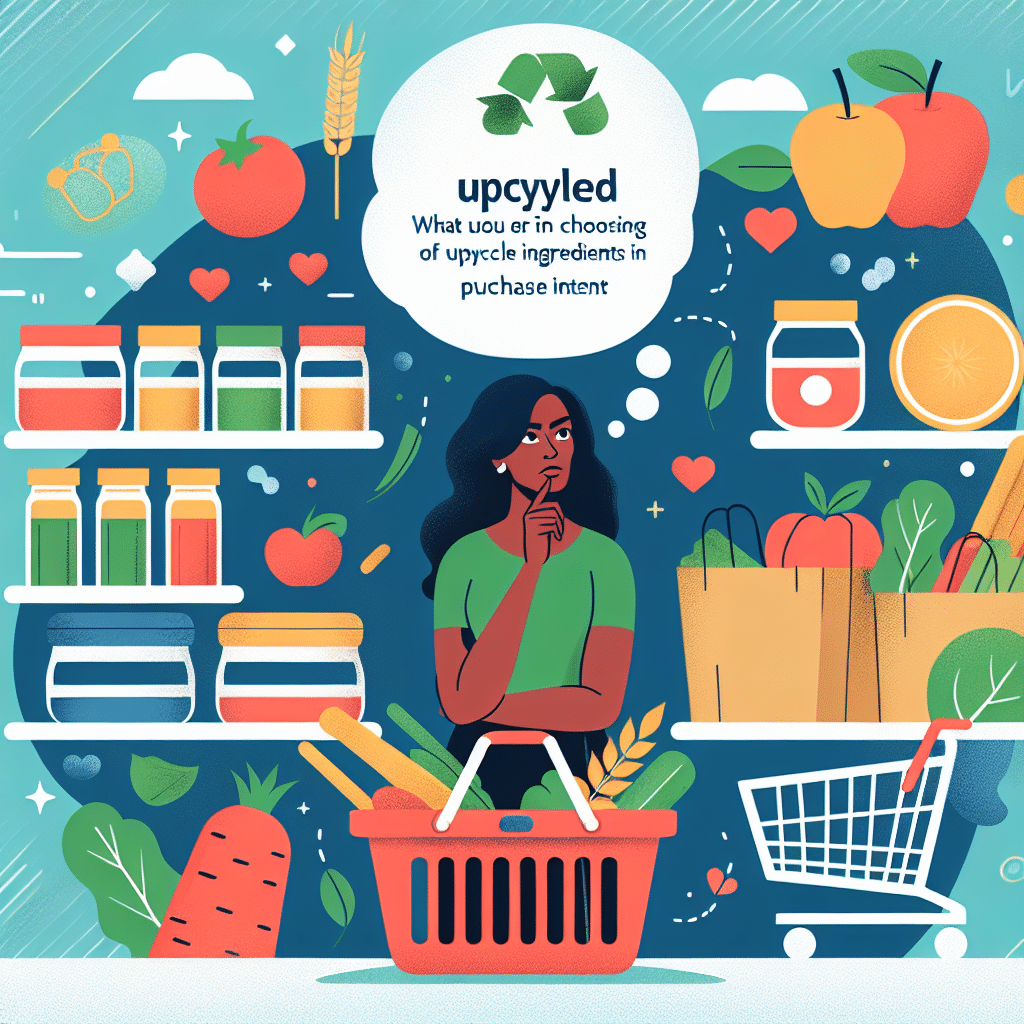Upcycled Ingredients: Nutrition’s Role in Purchase Intent
-
Table of Contents
- Upcycled Ingredients: Driving Purchase Intent with Nutritional Benefits
- The Rise of Upcycled Foods
- Nutrition’s Impact on Purchase Intent
- Case Studies: Success Stories in Upcycling
- Consumer Perceptions and Market Trends
- Challenges and Considerations
- Conclusion: The Future of Upcycled Ingredients
- ETChem: Leading the Way in Nutritional Protein Products
Upcycled Ingredients: Driving Purchase Intent with Nutritional Benefits

As the world becomes increasingly aware of the environmental impact of food waste, upcycled ingredients have emerged as a sustainable solution that appeals to eco-conscious consumers. These ingredients, which are derived from byproducts or discarded elements of food production, are not only environmentally friendly but also offer nutritional benefits that can influence purchase intent. This article explores the role of nutrition in the growing trend of upcycled ingredients and how it shapes consumer behavior.
The Rise of Upcycled Foods
Upcycled foods are gaining traction as consumers look for ways to reduce their carbon footprint without compromising on health or taste. By transforming what would be waste into valuable food products, companies are addressing sustainability while tapping into the health-conscious market. The trend is supported by a growing body of research that highlights the nutritional value of many upcycled ingredients.
Nutrition’s Impact on Purchase Intent
Nutrition plays a crucial role in influencing consumer purchase decisions. As people become more health-conscious, they seek out products that offer additional health benefits. Upcycled ingredients often retain much of the nutritional value of their original form, making them an attractive option for those looking to enhance their diet.
- High in Fiber: Many upcycled ingredients are rich in dietary fiber, which is essential for digestive health.
- Antioxidant Properties: Upcycled products from fruit and vegetable sources can be high in antioxidants, which combat oxidative stress.
- Protein Content: Some upcycled ingredients, such as spent grains from brewing, are protein-rich, appealing to those looking for plant-based protein sources.
Case Studies: Success Stories in Upcycling
Several companies have successfully incorporated upcycled ingredients into their products, demonstrating the viability and appeal of this approach.
- ReGrained: This company uses spent grain from beer production to create nutritious snack bars, showcasing the potential of upcycled ingredients in the food industry.
- Ugly Produce: Companies like Imperfect Foods turn misshapen or cosmetically imperfect fruits and vegetables into consumer products, reducing waste and providing healthy options.
- Coffee Flour: Made from discarded coffee cherry pulp, coffee flour is a high-fiber, gluten-free ingredient used in baking and cooking.
Consumer Perceptions and Market Trends
Market research indicates that consumers are increasingly open to trying products with upcycled ingredients, especially when they understand the environmental and nutritional benefits. A study by Future Market Insights predicts that the upcycled food waste market will grow significantly, driven by consumer demand for sustainable and nutritious products.
Challenges and Considerations
Despite the potential benefits, there are challenges to mainstreaming upcycled ingredients. These include:
- Consumer Education: There is a need to educate consumers about the safety and nutritional value of upcycled ingredients.
- Regulatory Hurdles: Food safety regulations can be a barrier to using certain types of upcycled ingredients.
- Supply Chain Complexity: Ensuring a consistent supply of upcycled materials can be challenging for manufacturers.
Conclusion: The Future of Upcycled Ingredients
The future of upcycled ingredients is bright, with nutrition playing a pivotal role in driving consumer interest and purchase intent. As awareness grows and more companies innovate in this space, we can expect to see a wider range of nutritious, sustainable products on the market. The key to success will be in effectively communicating the benefits to consumers and overcoming the logistical challenges inherent in working with upcycled materials.
ETChem: Leading the Way in Nutritional Protein Products
For those interested in incorporating high-quality protein into their diets, ETChem offers a range of collagen products that cater to various health and wellness needs. Their commitment to quality and sustainability makes them a top choice for consumers looking to enhance their nutrition with environmentally responsible products.
About ETChem:
ETChem, a reputable Chinese Collagen factory manufacturer and supplier, is renowned for producing, stocking, exporting, and delivering the highest quality collagens. They include marine collagen, fish collagen, bovine collagen, chicken collagen, type I collagen, type II collagen and type III collagen etc. Their offerings, characterized by a neutral taste, instant solubility attributes, cater to a diverse range of industries. They serve nutraceutical, pharmaceutical, cosmeceutical, veterinary, as well as food and beverage finished product distributors, traders, and manufacturers across Europe, USA, Canada, Australia, Thailand, Japan, Korea, Brazil, and Chile, among others.
ETChem specialization includes exporting and delivering tailor-made collagen powder and finished collagen nutritional supplements. Their extensive product range covers sectors like Food and Beverage, Sports Nutrition, Weight Management, Dietary Supplements, Health and Wellness Products, ensuring comprehensive solutions to meet all your protein needs.
As a trusted company by leading global food and beverage brands and Fortune 500 companies, ETChem reinforces China’s reputation in the global arena. For more information or to sample their products, please contact them and email karen(at)et-chem.com today.




